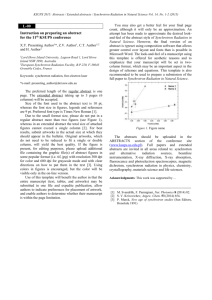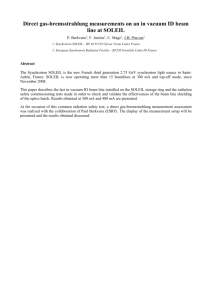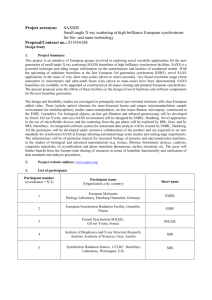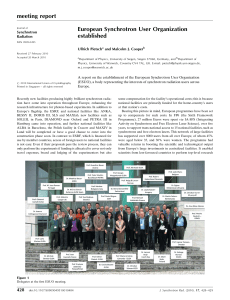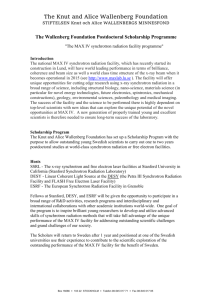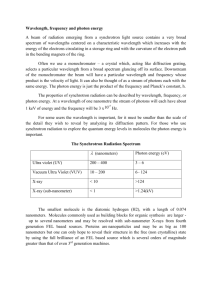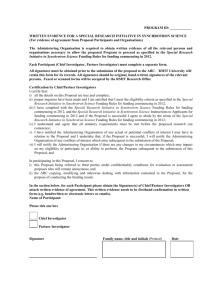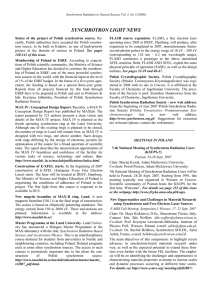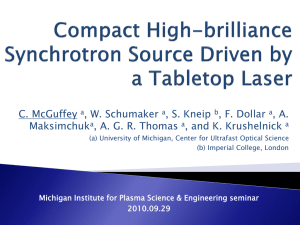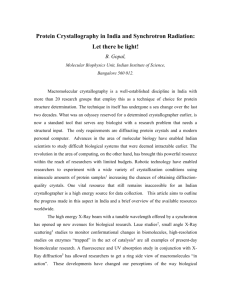Big molecules at nanometer scale: Self-assembling versus
advertisement
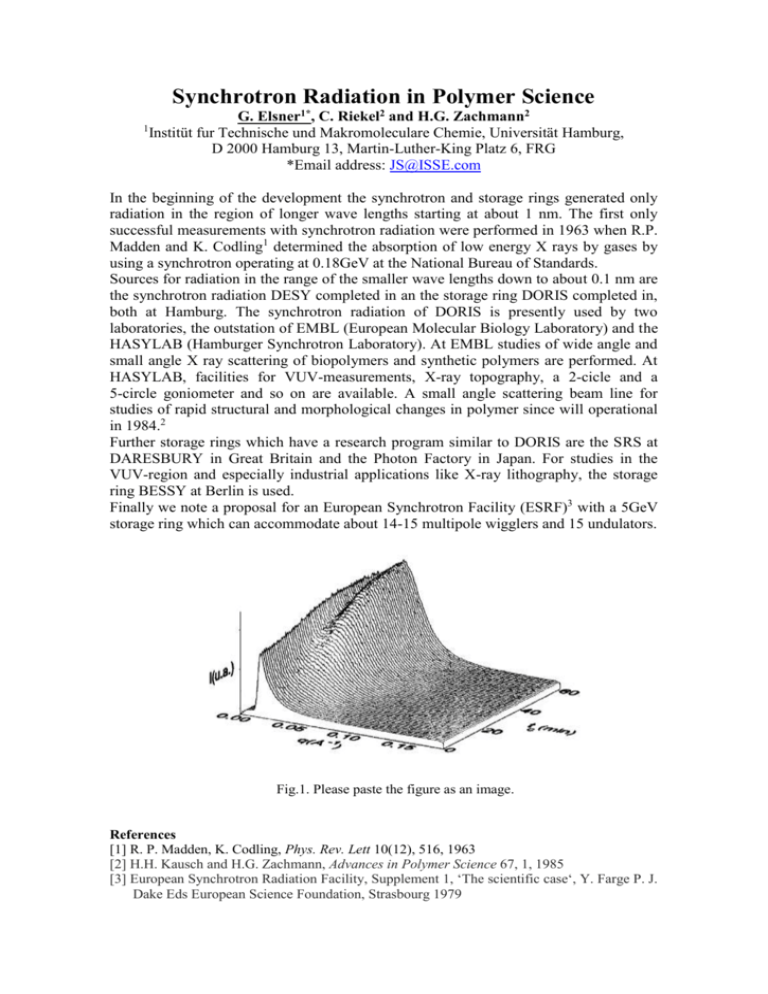
Synchrotron Radiation in Polymer Science 1 G. Elsner1*, C. Riekel2 and H.G. Zachmann2 Institüt fur Technische und Makromoleculare Chemie, Universität Hamburg, D 2000 Hamburg 13, Martin-Luther-King Platz 6, FRG *Email address: JS@ISSE.com In the beginning of the development the synchrotron and storage rings generated only radiation in the region of longer wave lengths starting at about 1 nm. The first only successful measurements with synchrotron radiation were performed in 1963 when R.P. Madden and K. Codling1 determined the absorption of low energy X rays by gases by using a synchrotron operating at 0.18GeV at the National Bureau of Standards. Sources for radiation in the range of the smaller wave lengths down to about 0.1 nm are the synchrotron radiation DESY completed in an the storage ring DORIS completed in, both at Hamburg. The synchrotron radiation of DORIS is presently used by two laboratories, the outstation of EMBL (European Molecular Biology Laboratory) and the HASYLAB (Hamburger Synchrotron Laboratory). At EMBL studies of wide angle and small angle X ray scattering of biopolymers and synthetic polymers are performed. At HASYLAB, facilities for VUV-measurements, X-ray topography, a 2-cicle and a 5-circle goniometer and so on are available. A small angle scattering beam line for studies of rapid structural and morphological changes in polymer since will operational in 1984.2 Further storage rings which have a research program similar to DORIS are the SRS at DARESBURY in Great Britain and the Photon Factory in Japan. For studies in the VUV-region and especially industrial applications like X-ray lithography, the storage ring BESSY at Berlin is used. Finally we note a proposal for an European Synchrotron Facility (ESRF)3 with a 5GeV storage ring which can accommodate about 14-15 multipole wigglers and 15 undulators. Fig.1. Please paste the figure as an image. References [1] R. P. Madden, K. Codling, Phys. Rev. Lett 10(12), 516, 1963 [2] H.H. Kausch and H.G. Zachmann, Advances in Polymer Science 67, 1, 1985 [3] European Synchrotron Radiation Facility, Supplement 1, ‘The scientific case‘, Y. Farge P. J. Dake Eds European Science Foundation, Strasbourg 1979

